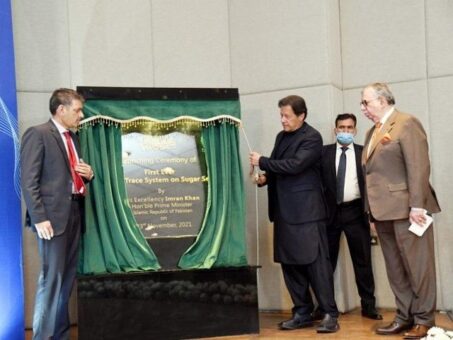ISLAMABAD: Prime Minister Imran Khan on Tuesday launched the online monitoring of supply and production of various items in order to plug revenue leakages.
Taxes vital for country’s economic stability and survival, the prime minister hoped and said that the use of technology will help check tax-pilferage and take revenue collection to the tune of Rs 8000 billion per annum.
“Our biggest issue is that we have to take loans to run the country. Countries cannot be run without taxes. We have our stability at stake,” the prime minister added.
The Federal Board of Revenue (FBR) has introduced the first-ever track and trace system in the country.
The prime minister congratulated the Advisor of Finance Shaukat Tarin, FBR, and other relevant institutions for introducing the technology-based system for which the efforts were being done since 2008.
The Prime Minister said that the introduction of the track and trace system was a big and positive achievement, which will have a far-reaching impact.
According to details, the FBR’s track and trace system will ensure electronic monitoring of the production and sale of important sectors like tobacco, fertilizer, sugar, and cement.
With the electronic monitoring of goods’ movement from production to the use of consumers, the track and trace system besides increasing the country’s revenue will also help ensure transparency and check the pilferage of taxes.
After the implementation of the track and trace system in the tobacco sector, the FBR was now going to introduce this system in the sugar sector, which will follow the implementation of electric monitoring of other sectors as well.
Under the new system, no sugar bag can be taken out from the production site, factory or manufacturing plant without a stamp and individual identity mark. The FBR was also planning to implement the new system in the beverages and petroleum sectors.
The Prime Minister said that with a reasonable tax-to-GDP ratio in the West and highest in Scandinavian countries, Pakistan could not promote the tax culture due to different reasons including the aristocratic lifestyle of the ruling elite in the past, which shattered the confidence of taxpayers in governments.
The practice of not paying due taxes was continuing since the colonial era, when people used to think that their hard-earned money was being taken out by the foreign rulers and they were not being provided basic facilities, he remarked.
